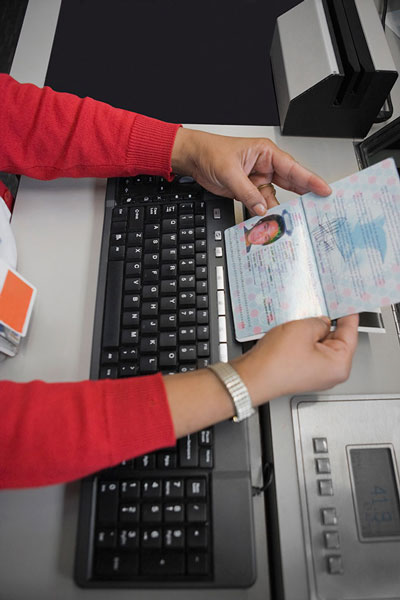Background checks are frequently conducted on job applicants to discover any potential problems with the applicant. These checks can help an employer uncover unreported criminal convictions or otherwise make sure the potential employee isn't lying about what he's put on his resume. But performing a background check to get to the truth is not as straightforward as it might seem. Background checks come with a number of problems and aren't completely reliable. This is problematic whether you're an employer trying to find a reliable employee or a job applicant trying to get hired.
Complex Criminal Records
Delving into a potential employee's criminal record isn't as easy as it may sound. First, there's no one commercial database that provides criminal records on everyone. The FBI has a database, but commercial background check providers are not authorized to search it. Someone doing a background check has to check databases from state to state, and they must sometimes even research in each county and city that a person has lived or worked. Criminal records are kept locally and not all local jurisdictions stay on track with sending records up to the state. In addition, records are typically only available for seven to 15 years, depending on the county.
Mistaken Identity
If you're rejected for a job because of a background check, it could be a case of mistaken identity. The problem is more common than you might think. A background company might use a computer to sift through data, and your record might be flagged if you have the same name and birth date as someone with a criminal record. For example, an NBC News article from November 2012 reported that a stay-at-home mom looking for a new job was rejected because her identity was mixed up with a woman who had the same name and birth date, but didn't even live in the same state.
Full Disclosure
If a company chooses not to hire someone because of something found on the applicant's background check, the company is legally required to let the applicant know, according to the Federal Trade Commission. Not all employers comply with or even know about this rule, which is part of the Fair Credit Reporting Act. Background checks run by a third party company are called consumer reports, and the FCRA has extensive rules regarding how a company can conduct them. The FCRA entitles you to receive a copy of the background report so you can see what might have flagged you. If you see something on your report that is inaccurate, you should contact the company that ran the background check and dispute the findings.
Relevant Laws
A company can't just conduct any type of background check it wants. A myriad of laws relate to how background checks are conducted, and some of the laws vary from state to state. Some states regulate how credit checks can be conducted. In Washington and Oregon, for example, only potential employees who will have jobs directly related to finance and credit warrant having a credit check conducted. And no matter where the company is located, it has to get permission from the applicant before running a credit check, according to the Fair Credit Reporting Act. Employers must also make sure that they are fully complying with federal Equal Employment Opportunity law. If they run credit checks for a senior management job, they need to run them on all applicants. An employer who runs credit checks only on women, for example, could be sued for violating equal employment practices.
<Source: http://www.ehow.com/>

